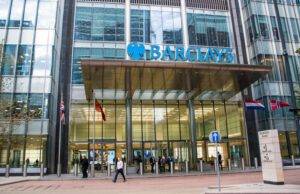Businesses forecast to pay an extra £1.56 billion in rates bills next April

<?xml encoding=”utf-8″ ?????????>
On current predictions, business rates bills look likely to rise by a total of £1.56 billion next April, giving unsustainable rises to all sectors of the economy.
Rates bills rise in line with inflation and are based on the CPI figure for the previous September. With CPI announced at 6.7% for August, Colliers are expecting to see CPI figures at around 6% for September 2023, with the result the total tax take from this tax will rise from around £26 billion in 2023/4 to £27.56 billion 2024/5 from next April.
This is unless the government steps in and freezes the business rates multiplier.
Last year, Chancellor Jeremy Hunt froze the multiplier for the current tax year, keeping it at 51.2p for every £1 of a commercial property’s rateable value, and 49.9p for small businesses.
Forty-four major British retailers have already written to the Chancellor ahead of his Autumn Statement, urging him to do the same again, otherwise they estimate an extra £400m will be added to the retailers cost base next year, particularly as Covid related reliefs come to an end.
However, as John Webber, Head of Business Rates at Colliers, points out, retail is not the only sector that will be penalised by this unsustainable tax. The logistics/manufacturing sector now pays 26% of the total business rates tax bill and has seen steep rises in its rates bills, as a result of the 2023 Revaluation. With inflation at 6%, Colliers estimate the sector will see its rates bills rise by around £406 million in April. Combined with the revaluation increases, Colliers estimates the Amazon London distribution park in Tilbury, for example will see its rates bill rise from around £4.7 million in 2023 to £6.7 million from April 2024- a massive £2 million increase- unless something is announced.
Similarly, the offices sector is expected to face an extra £354 million in its total rates bill. Barclays Bank in 1 Churchill Place in Canary Wharf, for example, will see its rates bills rise from around £9.1 million this year to £9.6 million in April 2024- a half a million pounds rise. At a time when companies are considering their office space requirement, this is certainly not going to help the “case” for investing in the office.
According to Webber such rises are unsustainable. “All sectors are suffering from increased costs, whether from increased wage bills, materials or energy costs. They cannot cope with the hike in rates bills too. Higher occupation costs will only dampen expansion and growth plans and for many businesses might be the last straw. The government must do something. Freezing the multiplier for 2024/5 is the first step, but only really papers over the issues. Ultimately, we need proper business rates reform.”
Webber has been an ardent campaigner for business reform and critical of successive governments that have totally failed to grab the nettle and just tinkered around the system or put it in the “too difficult box”. He believes the current system which provides £32billion gross (£26 billion net) for local authority funding is just unsustainable in current form, with the main issues being that rate bills are just too high and increasingly unaffordable for many businesses.
Webber continued, “In its 2019 Manifesto, the Conservative Party promised, “To cut the burden of tax on business by reducing business rates. This will be done via a fundamental review of the system.“ With rises of over £1.5 billion looming next year, it clearly has not fulfilled this promise. We urge the Chancellor to make a statement and to do it soon.”




